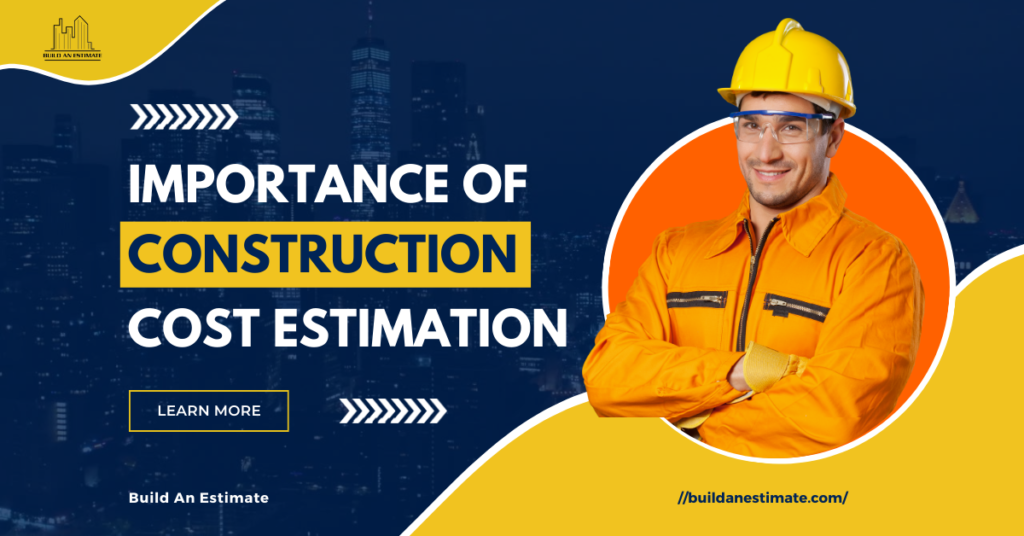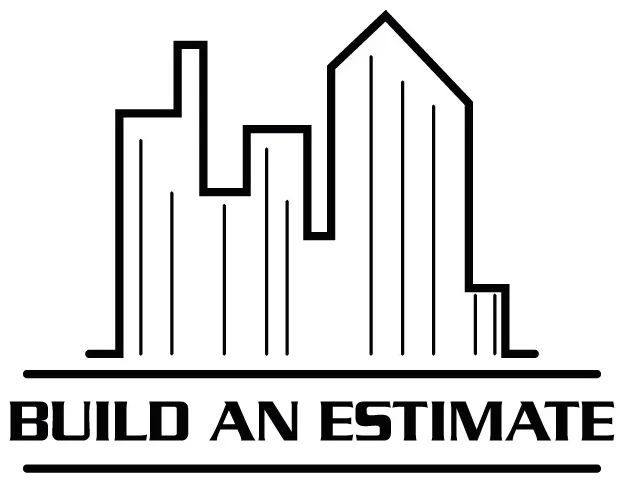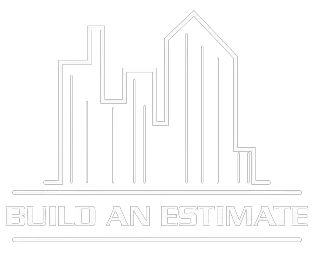- HOME
- SERVICES
- OUR TRADES
- ARCHITECTURAL DESIGN
- SAMPLES
- OUR PROJECTS
- ABOUT US
- CONTACT US
- Home
- Services
- Our Trades
- Samples
- Pricing
- Blog
- About Us
- Contact
- HOME
- SERVICES
- OUR TRADES
- ARCHITECTURAL DESIGN
- SAMPLES
- OUR PROJECTS
- ABOUT US
- CONTACT US
- Home
- Services
- Our Trades
- Samples
- Pricing
- Blog
- About Us
- Contact

The Importance of Accurate Residential Estimates
June 17, 2023The Importance of Cost Estimation in Construction

In the realm of construction, accurate cost estimation plays a pivotal role in ensuring the success of any project. Whether it’s a small residential building or a large-scale infrastructure development, cost estimation forms the foundation upon which financial decisions are made. In this article, we delve into the significance of cost estimation in the construction industry and shed light on its various aspects.
Table of Content:
- The Role of Cost Estimation in Construction
- Factors Influencing Cost Estimation
- Conclusion
- Types of Construction Cost
- Direct Costs/Unit Cost Estimating
- Indirect Costs
- Why is cost estimation in construction important?
- What are the benefits of construction cost estimation?
- What is the most important aspect of construction estimating?
- What are the three main functions of estimates in the construction industry?
The Role of Cost Estimation in Construction

1. Project Planning and Budgeting
Before commencing any construction project, it is imperative to have a well-defined plan and budget in place. Cost estimation in construction serves as the cornerstone of this process, allowing project managers and stakeholders to determine the financial feasibility of their endeavors. By considering factors such as labor costs, materials, equipment, and overhead expenses, accurate cost estimation enables effective project planning and budget allocation.
Cost estimation in construction is a crucial aspect of project planning and budgeting. By accurately estimating the costs associated with a construction project, stakeholders can make informed decisions regarding the feasibility and viability of the project. It allows them to set realistic goals, allocate resources appropriately, and establish a well-defined budget. Effective planning and budgeting based on accurate cost estimates help in avoiding cost overruns, delays, and other potential setbacks during the construction process. There are multiple tools that can be used for Cost Construction Budgeting For Example ProEst, Is a cloud-based construction estimating software that offers a wide range of features, including takeoff, estimating, scheduling, and bidding.
2. Resource Management
Effective resource management is key to successful construction projects. Cost estimation in construction helps project managers identify the resources required for a specific project, ensuring optimal utilization of labor, materials, and equipment. By understanding the projected costs, managers can make informed decisions regarding the allocation of resources, thus avoiding wastage and maximizing efficiency.
Construction projects require a wide range of resources, including materials, labor, equipment, and subcontractors. Cost estimation in construction aids in proper resource allocation by identifying the specific quantities and types of resources needed for the project. It enables project managers to allocate resources efficiently, ensuring that the necessary materials and personnel are available when required. Effective resource allocation helps minimize waste, prevents shortages, and improves overall project productivity.
3. Bid Preparation
For contractors and construction firms, winning bids is crucial for business growth and profitability. Accurate Cost estimation in construction empowers these entities to prepare competitive and realistic bids. By accurately assessing costs associated with labor, materials, and other project-specific requirements, contractors can present clients with transparent and reliable proposals, enhancing their chances of securing lucrative contracts.
Cost estimation is particularly important when it comes to competitive bidding and contract negotiations. Construction companies often participate in bidding processes to secure projects. Accurate cost estimation allows them to determine the most competitive and realistic bids, increasing their chances of winning contracts. Additionally, detailed cost estimates provide a solid foundation for contract negotiations, ensuring that all parties involved have a clear understanding of the project’s financial requirements.
4. Risk Mitigation
Construction projects are not immune to risks and uncertainties. However, meticulous cost estimation helps mitigate these risks by providing insights into potential cost overruns or project delays. By identifying potential risks and including contingency plans within the estimate, project managers can effectively minimize disruptions, ensuring smoother project execution.
Construction projects are inherently complex and involve various risks. Cost estimation in construction plays a crucial role in risk management by identifying and assessing potential financial risks associated with the project. By accurately estimating costs, project managers can anticipate and mitigate potential risks, such as cost overruns or unforeseen expenses. This proactive approach helps in minimizing financial uncertainties, enhances project profitability, and ensures the project’s overall success.
5. Client Satisfaction
Cost overruns can lead to dissatisfaction among clients, often resulting in strained relationships and damaged reputations. By providing accurate cost estimates, construction professionals can foster trust and transparency with their clients. Clear communication regarding costs and financial expectations builds a solid foundation for successful partnerships, boosting client satisfaction and project outcomes.
6. Project Monitoring and Control
Once a construction project is underway, cost estimation continues to be essential for effective project monitoring and control. By comparing actual costs against estimated costs, project managers can identify any deviations or variances early on. This enables them to take timely corrective actions, such as adjusting the project schedule, reallocating resources, or implementing cost-saving measures. Monitoring and controlling costs throughout the project lifecycle help maintain financial discipline and achieve project objectives within the allocated budget.
Factors Influencing Cost Estimation
Several factors come into play when estimating construction costs. Understanding these factors is essential for producing accurate estimates and avoiding costly errors. Some key factors include:
1. Project Scope and Complexity
The complexity of a construction project, including its size, design intricacies, and technical requirements, significantly impacts cost estimation. Larger and more intricate projects often entail higher costs due to the additional resources and expertise required for successful execution.
2. Location and Site Conditions
The geographical location of a construction project influences various cost elements. Factors such as accessibility, availability of labor and materials, environmental regulations, and site conditions can significantly impact cost estimates. Projects in remote or challenging locations may require additional expenses for logistics and site preparation.
3. Market Conditions
Construction costs are subject to market fluctuations, including changes in material prices, labor rates, and economic conditions. Staying up-to-date with market trends and adjusting estimates accordingly is crucial for accurate cost estimation. You can use Google Trends for that also industrial publications are a good way of understanding the current market conditions for a project.
4. Project Schedule
The duration of a construction project affects cost estimation. Longer project timelines often result in increased labor costs, equipment rentals, and material storage expenses. Conversely, expedited projects may require additional resources to meet tight deadlines, impacting the overall cost estimate.
Conclusion
Cost estimation in construction is a vital element for successful project execution. From project planning and budgeting to resource management and risk mitigation, cost estimation influences every stage of construction. By considering various factors such as project scope, location, and market conditions, professionals can produce reliable estimates, fostering client satisfaction and overall project success.
Remember, the accuracy of Cost estimation in construction requires expertise, experience, and a deep understanding of the construction industry. By partnering with knowledgeable professionals, stakeholders can ensure accurate cost estimation, leading to well-planned and financially viable construction projects.
Types of Construction Cost
Construction costs can be divided into two main categories: direct costs and indirect costs.
Direct costs are the costs that can be directly attributed to the construction of a project. They include the costs of materials, labor, and equipment.
Indirect costs are the costs that are incurred in support of the construction project, but cannot be directly attributed to it. They include the costs of overhead, such as insurance, taxes, and permits.
Direct costs are typically the largest component of construction costs. However, indirect costs can also be significant, especially for large projects.
The following is a more detailed breakdown of the different types of construction costs:
Direct Costs/Unit Cost Estimating
- Materials: The cost of materials is the largest component of direct costs. It includes the cost of all materials that are used in the construction of a project, such as concrete, steel, lumber, and roofing materials.
- Labor: The cost of labor is the second largest component of direct costs. It includes the cost of all labor that is used in the construction of a project, such as the cost of carpenters, electricians, plumbers, and other skilled tradespeople.
- Equipment: The cost of equipment is the third largest component of direct costs. It includes the cost of all equipment that is used in the construction of a project, such as excavators, bulldozers, and cranes.
Indirect Costs
- Overhead: Overhead costs are the costs that are incurred in support of the construction project, but cannot be directly attributed to it. They include the costs of insurance, taxes, permits, and general administrative expenses.
- Profit: Profit is the amount of money that the contractor makes on a project. It is calculated as a percentage of the total cost of the project.
The following are some factors that can affect construction costs:
- The size and complexity of the project: The larger and more complex a project is, the higher the construction costs will be.
- The location of the project: The cost of construction materials and labor can vary significantly from location to location.
- The time of year: Construction costs can be higher during peak construction seasons, such as the summer months.
- The availability of materials and labor: The cost of construction materials and labor can be higher if they are in short supply.
By understanding the different types of construction costs and the factors that can affect them, you can better estimate the cost of your next construction project.
Why is cost estimation in construction important?
Cost estimation in construction is crucial in the industry for several reasons:
- Budgeting: Accurate cost estimation helps in creating realistic budgets for construction projects. It allows project owners, contractors, and stakeholders to plan and allocate funds appropriately. A well-developed budget ensures that the project remains financially viable and helps in avoiding cost overruns.
- Decision Making: Cost estimation provides valuable information for decision-making processes. It helps stakeholders evaluate different options, compare alternatives, and select the most cost-effective approach. This enables informed decision-making regarding design choices, materials, equipment, and construction methods, ultimately leading to optimized project outcomes.
- Feasibility Analysis: Cost estimation in construction allows for the assessment of project feasibility. It helps in determining whether a construction project is financially viable and can be executed within the available resources. By considering costs early on, potential issues can be identified, and adjustments can be made to ensure project viability.
- Risk Management: Effective cost estimation in construction helps in identifying and managing project risks. By understanding the cost implications of potential risks, stakeholders can develop appropriate risk mitigation strategies and contingency plans. This proactive approach minimizes the chances of cost escalations and project delays due to unforeseen circumstances.
- Contractor Selection: Accurate Cost estimation in construction is vital for selecting the right contractor for a construction project. By providing reliable cost estimates, project owners can evaluate contractor bids and proposals effectively. It allows for a fair comparison of different contractors based on their pricing, expertise, and past performance, enabling the selection of the most suitable contractor.
- Project Monitoring and Control: Cost estimation in construction provides a baseline against which project costs can be monitored and controlled. By regularly comparing actual costs with estimated costs, project managers can identify cost variations, deviations, and potential cost-saving opportunities. This allows for effective project management, ensuring that the project stays on track financially.
What are the benefits of construction cost estimation?
The benefits of construction cost estimation include accurate budgeting, informed decision-making, feasibility analysis, effective risk management, contractor selection, and project monitoring and control. Accurate cost estimation ensures financial viability, minimizes cost overruns and facilitates successful project outcomes.
What is the most important aspect of construction estimating?
The most important aspect of construction estimating is accuracy. Accurate estimating ensures that project costs are properly assessed and allows for realistic budgeting, effective decision-making, and successful project execution. It is crucial to gather comprehensive and reliable data, consider all relevant factors, and utilize appropriate estimation techniques to achieve accurate cost estimates in construction projects.
What are the three main functions of estimates in the construction industry?
The three main functions of estimates in the construction industry are:
- Budgeting: Estimates help develop realistic budgets for construction projects by determining the expected costs of labor, materials, equipment, and other project-related expenses. Accurate budgeting ensures that adequate funds are allocated, and financial resources are managed effectively throughout the project.
- Bidding and Proposal: Estimates play a crucial role in the bidding and proposal process. Contractors use estimates to prepare competitive bids and proposals when vying for construction projects. Accurate estimates enable contractors to determine appropriate pricing, demonstrate their expertise, and secure contracts.
- Project Control and Management: Estimates serve as a benchmark for project control and management. Throughout the project lifecycle, estimates are used to monitor and compare actual costs against estimated costs. This helps in identifying cost variations, managing project finances, and making necessary adjustments to keep the project on track. Estimates also aid in tracking project progress and evaluating the financial performance of the project






